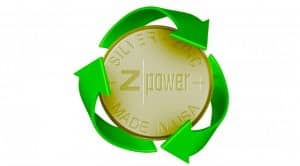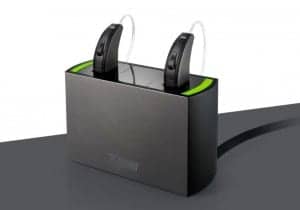Expert Insight | March 5, 2018
Courtesy of ZPower
About Our Expert…
Barry Freeman, PhD, is vice president of business development for ZPower, and has been leader and educator in the global audiology community for over 35 years. Prior to joining ZPower, he was CEO and President of Audiology Consultants Inc (ACI), a private audiology consulting firm, and Senior Director of Audiology and Education for Starkey Hearing Technologies, a global manufacturer of hearing aids. Dr Freeman has served as Chair and Professor of Audiology at Nova Southeastern University (NSU) and has taught full time or as an adjunct professor in some of the most distinguished audiology programs in the country. Additionally, he owned and practiced for 20 years at the Center for Audiology in Clarksville, Tenn, and Hearing Services of Kentucky in Hopkinsville, Ky. He is a past president of the American Academy of Audiology (AAA), served on the AAA Board of Directors for 6 years, and continues to serve on several professional boards.
Q & As: This Week’s Top Selections
What happens when the silver-zinc rechargeable battery is getting low on power?
The hearing aid wearer will hear the low battery warning. Once the low-battery warning occurs or once a hearing aid shuts off due to a low battery condition, the battery door should not be opened and closed to reboot the hearing aid. Rebooting after the low battery warning can override the smart circuitry in the battery door into believing it has a traditional disposable battery installed and, although the hearing aid will continue to work for a short period, it may over-discharge the battery. If a low-battery warning from the hearing aids is received, the hearing aids should be placed in the charging base for charging or the batteries should be replaced with non-rechargeable batteries. The rechargeable batteries should not be stored with metal objects such as keys or coins.
How often should the batteries be charged?

What happens if the hearing aid wearer forgets to charge the battery at night?
They can use a disposable zinc-air battery until it is convenient to re-charge the batteries—ideally the rechargeable batteries should be charged the next night. The rechargeable silver-zinc batteries are a gold color, so they will not be mixed up with zinc-air disposable batteries. The rechargeable batteries should be stored in a safe place and should not be stored with metal objects such as keys or coins.
Ask Your Question!
Send your questions to [email protected] or via the comment box below.
Previous Q & As
Q: What’s a realistic time frame for a rechargeable hearing aid battery to last?
A: Rechargeable silver-zinc batteries last about a year. They are removeable and therefore easily replaced. It is recommended that rechargeable silver-zinc batteries are replaced once a year by a hearing care professional.
Li-ion batteries are sealed within the hearing aid, and are usually removable only by the hearing aid manufacturer. They last longer than a year and potentially can last the life of the hearing aid.

A: When the hearing aids are put on the charger, the charger will check to see what type of battery is in the hearing aid. If the charger detects a disposable zinc air battery, the lights on the charger will turn red. If the charger detects a silver-zinc battery, the lights on the charger will start blinking green; once the battery is fully charged, the lights will turn solid green.
Q: Can my patients overcharge a ZPower battery if they leave it in the charger for too long?
A: The batteries will not overcharge if left in the charger. It is a best practice to put the hearing aids back on the charger when the hearing aids are not being worn during the day. This will keep the hearing aids turned off and the batteries charged. For long-term storage, if batteries will not be used for over 2 weeks, the rechargeable batteries should be removed from the hearing aids and stored in a location where they will not touch each other or other metal objects.
For more information, visit the ZPower website.
Ask Your Question!
Send your questions to [email protected] or via the comment box below.



Other than ZPower, what companies make rechargeable Silver Zinc 312 hearing aid batteries. I’m learning about batteries the hard way. The NiMH batteries won’t charge in my hearing aid charger.
Thank you, please reply to email.
Robert
If you open and close the battery door after the low-battery warning occurs on hearing aids with rechargeable silver zinc batteries, I just read it can override the smart circuitry and it may over-discharge the battery. Will this reduce how many hours your batteries last daily: e.g instead of 14 -16 hrs, now you only get 7-9 hrs daily? How can the problem be corrected if this has occurred?
I only get a charge that last about 7 hours…this is the second set of batteries with the same problem…..it ‘s only my left ear device that won’t give me a full days charge….any ideas…..yes they are fully charged each night as directed
There are no charging units just for the silver-zinc batteries. Unitron who made my hearing aids, very kindly fulfilled my requested solution by providing me with a pair of dummy hearing aids that only serve to fit into the ZPower recharger to recharge the silver-zinc batteries.
Power One does make charging units just for the battery, but for nickel-metal-hydride batteries, NOT for
silver-zinc.
Tell ZPower to start meeting the consumer need for such a charger.
Is there a method to recharge a rechargeable battery without it being in the aid ? A singular charging unit for just the battery?